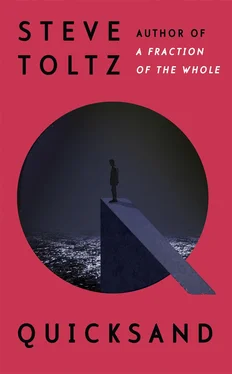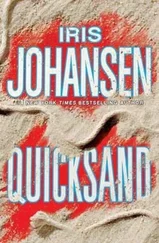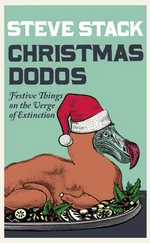— Aldo. You might be just the subject I’ve been looking for.
XI
At Mimi’s insistence, I took her on what she called a tour of my Sydney, and let her photograph me in front of the two-storey homestead at the Benjamin compound I grew up in, presently occupied by an unwelcoming Chinese family not averse to shooing away former tenants; beside the ugly redbrick building where Henry had kept a secret apartment; at the leafy marketplace where I paid a fortune teller double to read her own palms; in the empty swimming pool where I once almost drowned; at the police station where I was held for wasting police time; on the rooftop where Stella was married and I drank myself into a coma; in the hospital where I had my first three kidney stones removed; at Luna Park where I’d been stabbed; in the lobby of the Railway Hotel where I’d found a man hanging; outside Liam’s house where I was accused of raping Natasha Hunt; in the motel room where Stella and I hid from vigilantes; in the park where I was beaten with a tennis ball in a sock; in the bushland where I’d shot a zombie film; at the bar where Stella played her first gig; leaning against my abandoned car that had no registration and a dozen tickets and which I still planned to reclaim — basically, she photographed me at the locations of my catastrophes, where none of my gambles had paid off. Wherever we went, I was recognised by furious creditors with long memories, who forced us to make detours through cold streets and alleyways. Mimi photographed these confrontations, capturing the shiver of horror running through me as my enemies with their stockpiled grievances greeted me with humourless shouts: Your phone’s cut off! You don’t answer your emails! The deceased didn’t mind making me look foolish. And neither did I, that was the truth.
— You’ve had a bad go of it, Mimi sympathised, one day after we’d stopped for lunch and I had tried unsuccessfully to order off the kids’ menu — the waitress wasn’t having it — and the angriest son of my angriest creditor sitting at the next table marched over and punched me hard in the breastbone. It was true. I had had a bad go of it. The sorrows knew when to waken, like vampires in their coffins. Mimi said she understood that the women in my life — Leila and Veronica and Stella and little baby Ruby — were the inextinguishable cold-fires in the black hole of my sadness, but that Stella was roaring the loudest. She asked me when I knew it was over. I used to believe it was the moment I realised I was no longer Stella’s muse, but another time occurred to me: One night, a few months after Ruby’s death, we could both feel the relationship slipping away irrevocably; around bedtime she gave me a rare open-mouthed kiss and asked if there was a sexual fantasy I’d never fulfilled. Off the top of my head, I said I’d always wanted to tear clothes violently from a female body. She put on her favourite dress, a black full-length evening gown, and said, Go ahead. I tore it with both hands, almost surgically down the middle, and we fucked on a chest of drawers. Afterwards Stella gave me two options: take the dress to a professional or stitch it myself — she needed it by the weekend. The following morning I went to the dressmaker. End of week, eighty dollar, the dressmaker said. I thought: Eighty dollars! The price of passion. The only problem was I had to borrow the money from Stella to retrieve the dress. She was in the kitchen baking banana bread when I asked her for it, and the face she made was so repulsed and repulsive, I felt some core piece of myself leave my body — my immortal soul wanted no part of that scene — and I knew it was over. I have not felt the same since that day; I’ve had some fundamental instability I can only relate to that morning in the kitchen.
At the end of my story Mimi said she had the impression she was watching a famine through a television commercial.
— I’d like to do a series of portraits of you out in the desert where you lost your child, she said.
The deceased wasn’t exactly sensitive, Your Honour. But here’s the thing. My story finally triggered the secret story of her own the following day, so despite her initial reticence, in the end she revealed her innate volubility; and that old familiar disregard for the listener’s limitations set in, and the intimacy that had blossomed between us held, like a successful transplant.
XII
We strolled together, all the artists, along the coastal highway, past the beach club, the holiday houses — eight- or twelve-bedroom monoliths with palm trees and circular automated driveways and high security gates and all-year-round gardeners — in which one never saw a single resident, then we cut a path through the bush and wound down a steep descent to a small, hidden beach.
— Magic Beach, Dan Wethercot said.
It was a crazy place. A forbidding piece of rock jutted out of the sea with a seagull perched atop it like a sentry on a watchtower; surfers manoeuvred around it with abandon, high-risk-tolerant individuals, half demented in fact. They were taut gymnasts with wild gestures and an excess of testosterone; in zigzags or clean arcs they slipped down walls of water into gardens of froth among boulders of sea-slicked granite. I feared they would be cleaved in two, or mashed or impaled and skewered; seemingly limitless harm could be done to a body in this place. The ocean was deafening; I felt I had seashells clamped to both ears. Beside me, Mimi in her tortoiseshell sunglasses was very still, gaping at the surfers with escalating dread and tension, and sighing with relief when they emerged whole out of the spume.
— What are you thinking about? Mimi asked, taking my hand.
I was thinking that oceans are hotbeds of extraterrestrial activity while we look dumbly at the skies. I was thinking: An immortal is a man whose body has gone insane. But mainly I was thinking about the previous night.
We’d played a few mildly dangerous sexual games until Mimi screamed — I forgot our safe word — and we collapsed together, then around midnight, perched on the edge of the bed, overwhelmed by a new nightly panic — I just couldn’t get over how, while I was experiencing the mystery of being alive, I was expected to just lie there for eight hours — I shouted at her, We’re alive! So why are we going to bed? Mimi quieted me with a look that seemed to say that all the answers could be heard in the silence, if only I’d learn how to listen. And I listened. And I heard it. I mean, really heard it. When she finally fell unconscious, I covered her tawny body with a sheet and kissed her dark eyebrows and fragile throat and her meaty scarlet lips, and stared at her amazing frizzy hair that required its own pillow. I watched goosebumps form on her arms and nightmares make lines in her forehead. I thought: What a woman. I thought: It’s cute how she enjoys crushing cigarettes into ashtrays more than smoking. The windows rattled in the wind and a dog yelped; Mimi sat upright, her razor-wire hair silhouetted against the moon like pubic hair on a plate. I took her in my arms and gently lowered her in the bed; I felt like I had taken receipt of her due to a clerical error. Thanks to Mimi, I was acting like my old self again; the keyword, though, is acting — think Charlie Chaplin entering a Charlie Chaplin look-alike contest and coming in third. Or was that Elvis? Either way, even if I did a fairly solid impression of myself, was it really me? I took a deep breath and thought: Holy crap. I think I love Mimi!
Ladies and gentlemen of the jury! Consider the horrific complexity of my situation. For a suicidal case, love is inconvenient; for an immortal, it is a cause for despair. I climbed out of bed and went out onto the balcony so I could think of Mimi in peace without Mimi herself interrupting me. Cold night air in my face, I felt shame that I loved Mimi in a similar way to how I loved Stella, but relief that I could forget about my terror at having lost Stella and could enjoy the terror of losing Mimi.
Читать дальше











